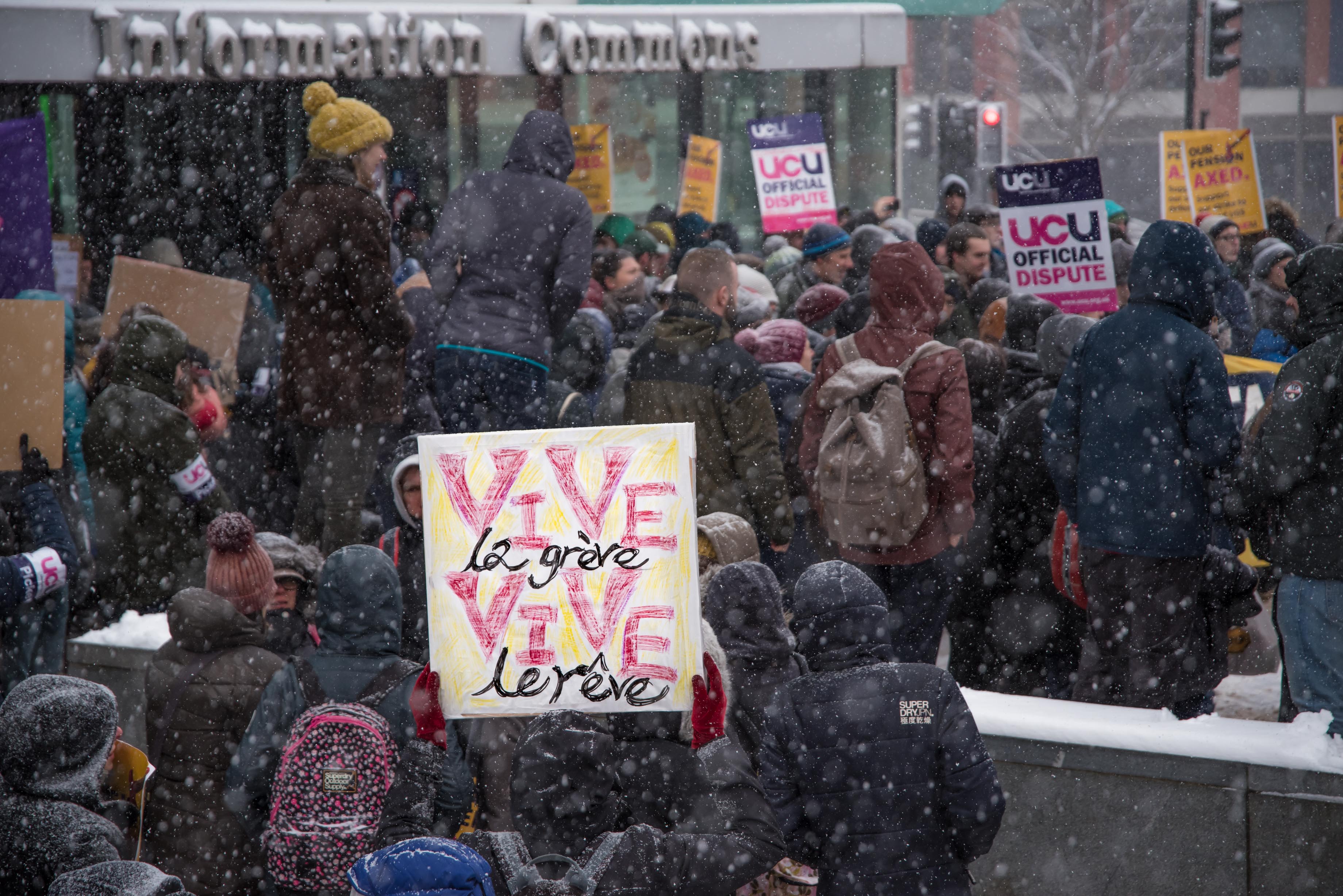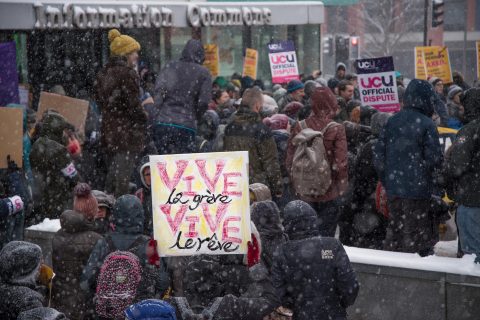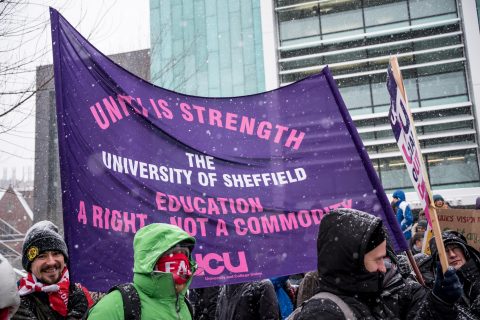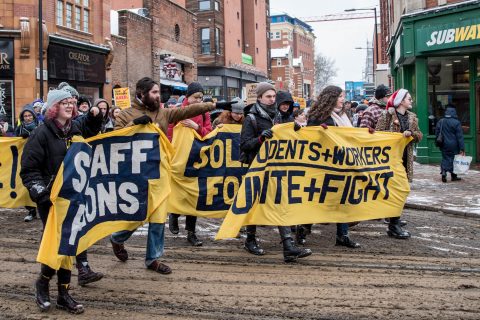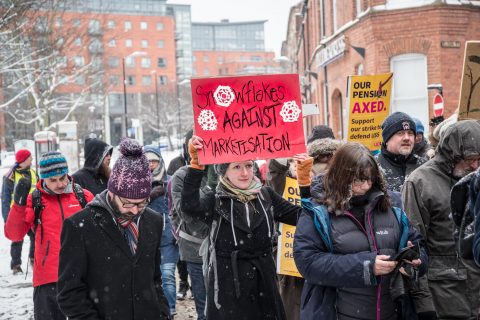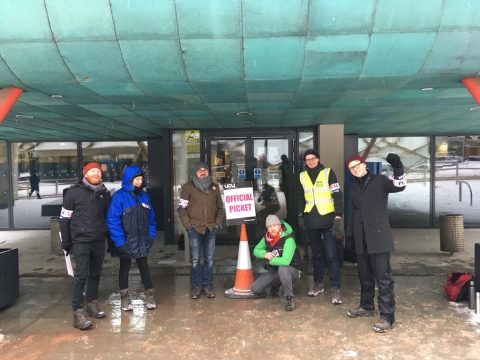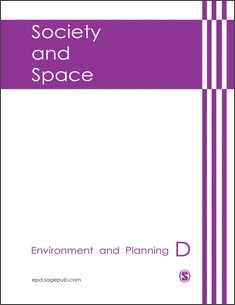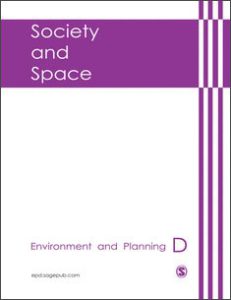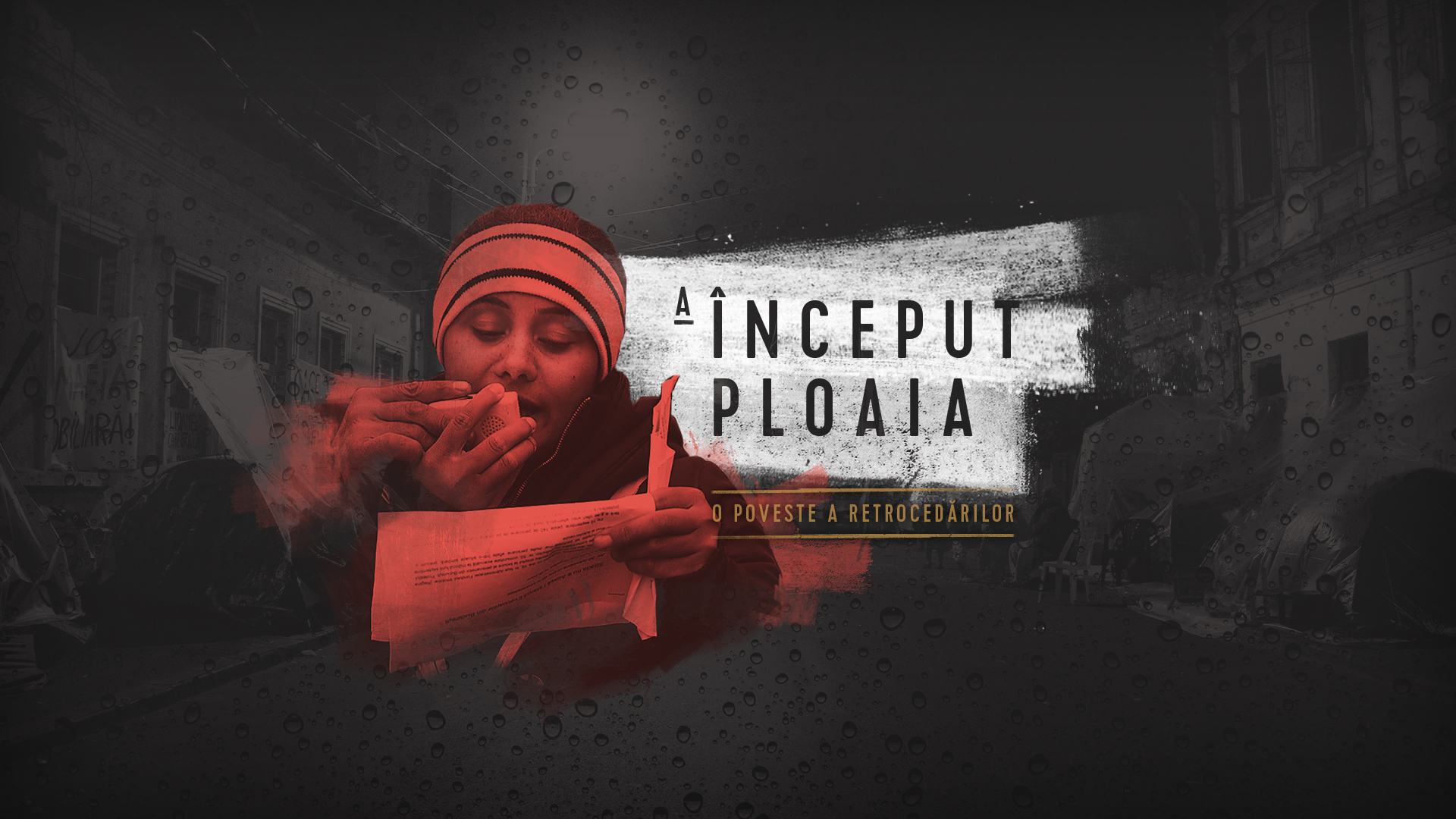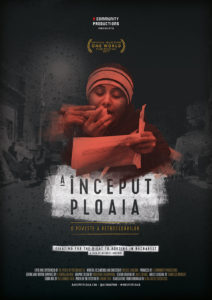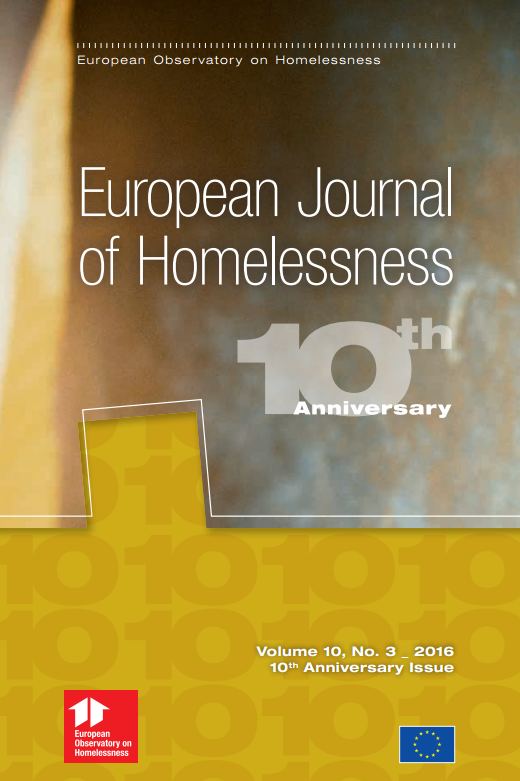
Together with many of my colleagues across USP and the Urban Institute, I have been striking for almost two weeks, to defend our pensions against its complete neoliberalisation (here info on the rationale of the action). I also decided to strike to fight for our Union – UCU. This latter point is of particular importance to me. If my pension will probably evaporate anyway because of Brexit (I intend to go back to Italy at some point, and at that point my pension will be taxed like a ‘foreign capital’), preserving a strong Union remains very important in today’s context, where everything becomes increasingly privatised and individualised.
During the pickets organised at the UI building, ICOSS, I shared the ground with some amazing people who, with their bodily politics, reminded me of the importance of collective actions and struggles. What we – Andy, Vicky, Jon, Martin, Tom, Nick and many others – did there, under the snow and the rain, was grounded in an horizontal solidarity that needs to be preserved and fostered further. Striking for our union is both about UCU and, more importantly, about that being together, that feeling that we are more of our individualised subjectivity. That we are and we can be a collective intellectual body, with a clear politics and orientation.
Strike action for the pension will continue. I hope that more colleagues will join, to make us, all of us, stronger and more unite. Avanti!
Below some pictures of one of the marches that we organised in Sheffield, with the amazing support of our students.

